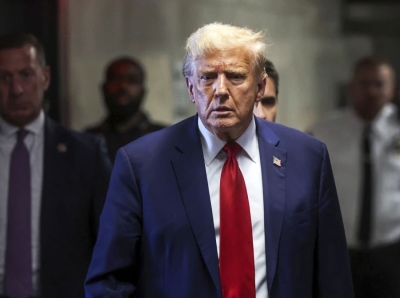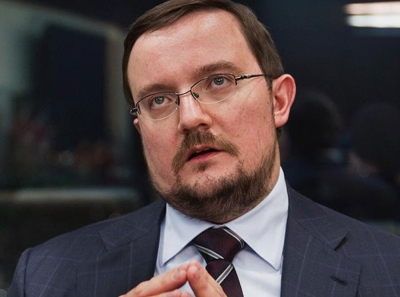Taurus wiretapping scandal: what’s at stake here?
In Berlin, a wiretapping scandal has caused major controversy: Russian media published a 38-minute recording of a briefing on Friday in which senior Bundeswehr officers discussed the possibility of German Taurus cruise missiles being used by Ukraine. German Chancellor Olaf Scholz has repeatedly rejected the idea of Taurus deliveries to Ukraine. Commentators take a closer look.
A welcome distraction
For the Frankfurter Rundschau the leak shows just how nervous Putin is:
“The Russian leadership clearly felt the urgent need to make the wiretapping public now. Two weeks before the pro-forma presidential election, not everything is going according to plan for the Kremlin. The crowds mourning at the funeral of opposition politician Alexei Navalny and at his grave in the days that followed put the lie to President Vladimir Putin’s narrative that the whole nation supports him and his war of aggression. From the Kremlin’s point of view, a distraction was needed. The officers have provided just that.”
Just a hypothetical discussion
Writing on Facebook, journalist Anatoly Nesmiyan sees no need for such a fuss:
“The Germans dealt in detail with a very specific question, namely: ‘Let’s assume (a very important qualifier) that we deliver Taurus to Ukraine. That won’t happen any time soon, it will take seven or eight months, but let’s assume we do. What can they achieve in this particular conflict? ... There are only two targets for them — Sevastopol with its naval base and the Crimean Bridge.’ ... So the officers continued the discussion with German pedantry: if that’s the case, how many of these missiles will be needed? In other words, it was not clear from the conversation that it was a deployment plan. The officers were simply hashing out what they should tell the country’s leadership if asked.”
Doubts about Berlin’s effectiveness
Ilta-Sanomat wonders whether Germany can still be trusted:
“One possible explanation for the publication of the Russian wiretap recording is that it is meant as a message to Germany — and also the other Nato states. Germany and the other Nato states now know that the information security of at least the German Air Force and perhaps the rest of the defence apparatus is weaker than Russia’s interception capabilities. And now they also know that Russia is aware of the internal German Taurus discussions — and the presence of Western soldiers in Ukraine. It is no longer entirely certain that the other Nato countries can rely on Germany’s ability to keep and protect secrets.”
Scholz’s strategy is wrong
Gazeta Wyborcza interprets Germany’s hesitation over arms deliveries as fruitless compliancy vis-à-vis Putin:
“Scholz tried so hard, and yet Kremlin propaganda denounced him anyway. The Russians would say: he lost his virtue and didn’t earn a single rouble in exchange. ... All the civilised countries of the world are taking part in this war on the side of Ukraine, which is defending itself. ... We are not sending soldiers, but we are donating equipment, ammunition and money, training the Ukrainian army and supporting it in other ways. We do this driven by a simple calculation: if Ukraine loses, we are next on Russia’s list. If the German military understands this, why doesn’t the German Chancellor?”
Afterpains of Ostpolitik
Corriere della Sera explains:
“You have to look back to understand why Berlin is the prime target of Putin’s hybrid war against the collective West. Germany has always been the weak point in Western relations with Moscow. ... It always kept political and economic channels with the Kremlin open. The weight of Nazi crimes in Operation Barbarossa [the Wehrmacht’s war of aggression against the Soviet Union in 1941], the energy supplies that fuelled the various German economic miracles, and the reality of millions of compatriots held ‘hostage’ for half a century on the other side of the Wall were the background to the Ostpolitik that has determined the foreign policy of Bonn and then Berlin since Willy Brandt.”









